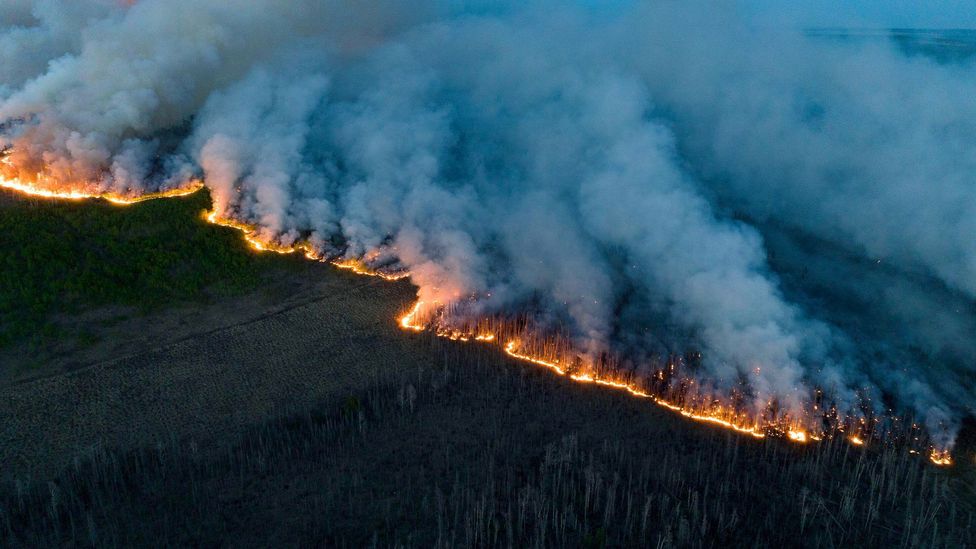Scientists have found that the conditions that caused Canada’s extreme spate of wildfires this year, which resulted in parts of the US and Canada to be blanketed in toxic smoke, were made at least twice as likely due to the human-caused climate crisis.
The 2023 Canadian wildfire season has been the largest, and most devastating, on record, with nearly 14m hectares (34m acres) burned, an area larger than Greece, according to reports. The extent of these fires, more than double the size of the previous record, caused more than a dozen fatalities and thousands of evacuations, and sent a plume of smoke that unfurled as far as Norway and, for a time in June, turned the sky above New York City orange.
Now, scientists have analyzed the conditions that caused the fires that raged in the Canadian province of Quebec between May and July and found that the climate crisis, driven by the burning of fossil fuels, made them at least twice as likely, and the fire-prone weather at least 20% more intense.
Conducted by a coalition of scientists in Canada, the UK and the Netherlands, the attribution study found that while the fire-prone weather conditions were unprecedented, they are no longer unexpected and will become more commonplace as the worlds continues to heat up.
Read also: Japan to release wastewater from ruined nuclear plant
“The word ‘unprecedented’ doesn’t do justice to the severity of the wildfires in Canada this year,” said Yan Boulanger, research scientist at Natural Resources Canada and part of the World Weather Attribution study team. “From a scientific perspective, the doubling of the previous burned area record is shocking. Climate change is greatly increasing the flammability of the fuel available for wildfires – this means that a single spark, regardless of its source, can rapidly turn into a blazing inferno.”
Furthermore, the new study looked at the fire weather index, a metric that gauges the risk of wildfire through a combination of temperature, windspeed, humidity and rainfall, and found that its peak in Quebec from May to July, when there was a huge number of fires, had its chances of occurring doubled because of the climate crisis. The fires in this peak were also 20% more intense because of the climate crisis.
The study found that while climate change itself doesn’t typically ignite huge forest fires, it helps set the stage for them by drying out vegetation that becomes easy fuel for flames. The early stages of summer were ideal conditions for this, with Canada’s national temperature record for May and June smashed by 0.8C (1.4F), which, along with low humidity and the shrinkage of snow cover, aided the rapid spread of fires across Canada.
Philippe Gachon, who is a researcher at the Université du Québec à Montréal was quoted as saying that snow cover has traditionally limited the extent of wildfires in Canada, but that this is changing.
“This year, high temperatures led to the rapid thawing and disappearance of snow during May, particularly in eastern Quebec, resulting in unusually early wildfires,” he said. “The ongoing loss of snow in a warming climate means that wildfires will burn for many more days each year in Canada.”
Story was adapted from the Guardian.
